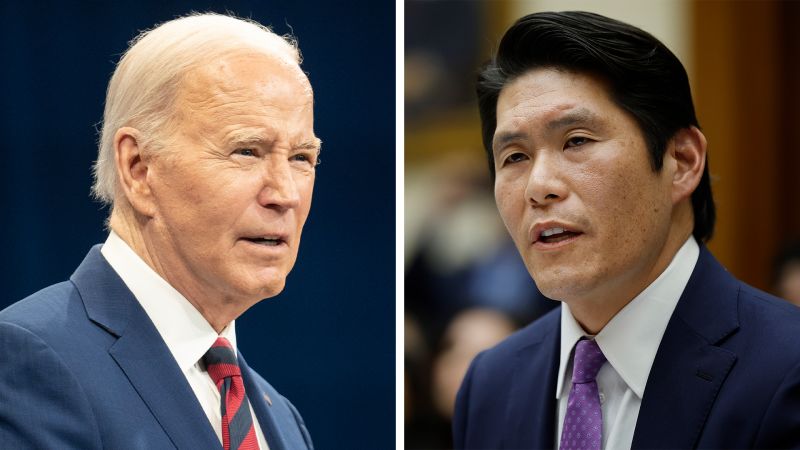The Department of Justice has stated that it will not provide Congress with the audio tapes from Special Counsel Robert Hur’s interviews with President Joe Biden, despite threats from House Republicans to hold Attorney General Merrick Garland in criminal contempt. In a letter obtained by CNN, the DOJ said they would not meet the deadline set by Republicans for turning over the audio tapes. The department pointed out that the committees already have all the transcripts of the interviews requested from Hur’s investigation into Biden’s handling of classified documents, including interviews with the President and his ghostwriter.
It remains unclear whether House Republicans will follow through on their threat to hold Garland in contempt of Congress for failing to fully comply with the congressional subpoena. Assistant Attorney General Carlos Felipe Uriarte urged the committees to avoid conflict and argued that the department has already met the committees’ informational needs with the transcripts provided. Uriarte also noted that Republicans did not have a legislative justification for subpoenaing the audio tapes, given they already have the transcripts, and accused them of escalating the issue for political purposes.
Uriarte expressed concern that the committees’ focus on demanding information that is already available indicates that their interests may not be focused on legitimate oversight or investigatory functions but rather on political agendas. He also warned that producing the audio tapes could harm future investigations by reducing the likelihood of securing cooperation from witnesses in interviews, which would not be in the public interest. The department emphasized the importance of maintaining cooperation with prosecutors and investigators for future cases.
The refusal to provide the audio tapes has raised tensions between the Department of Justice and House Republicans, who are pushing for full compliance with the congressional subpoena. The DOJ argues that they have already met the committees’ needs with the transcript of the interviews and that producing the audio tapes would not serve a legislative purpose. The standoff between the DOJ and Congress highlights the ongoing power struggle between the branches of government and the challenges faced in conducting oversight of the executive branch.
House Republicans may decide to take further action against Attorney General Garland for his refusal to provide the audio tapes, including pursuing criminal contempt charges. The outcome of this conflict will have implications for the balance of power between Congress and the executive branch, as well as the ability of lawmakers to conduct oversight of the President’s actions. The Department of Justice’s stance on this issue reflects their concerns about the impact of producing the audio tapes on future investigations and the importance of maintaining cooperation with witnesses for law enforcement purposes. The dispute underscores the complexities of navigating the relationship between the branches of government in the context of oversight and accountability.


